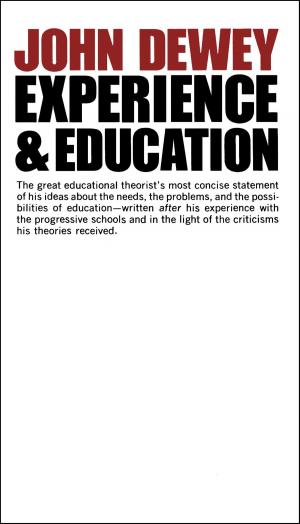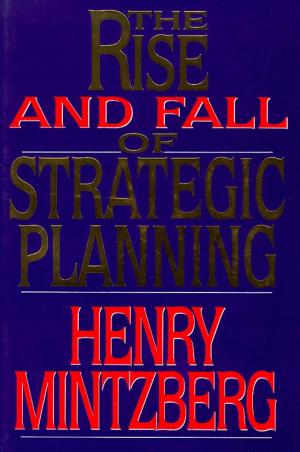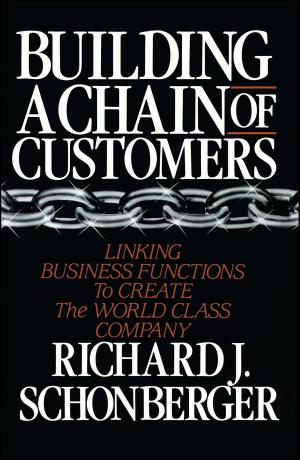Plan B
How to Hatch a Second Plan That's Always Better Than Your First
Business & Finance, Entrepreneurship & Small Business, Entrepreneurship, Management & Leadership, Management| Author: | David Kord Murray | ISBN: | 9781439198384 |
| Publisher: | Free Press | Publication: | September 20, 2011 |
| Imprint: | Free Press | Language: | English |
| Author: | David Kord Murray |
| ISBN: | 9781439198384 |
| Publisher: | Free Press |
| Publication: | September 20, 2011 |
| Imprint: | Free Press |
| Language: | English |
Why has Facebook been so limber, evolving so successfully even after a number of stumbles, while Myspace stalled and lost ground? Why was Wal-Mart able to expand so successfully into new offerings, such as groceries, while H&R Block dramatically failed to expand into offering financial services? The answer, David Murray reveals, is that Facebook and Wal-Mart both started with business models that empowered them to effectively adapt their plans as they executed them.
The failure of detailed strategic plans that have taken a great deal of time and money to develop is one of the worst problems in business, and it’s ever more urgent as the pace of change in business continues to accelerate. Murray, author of the acclaimed Wall Street Journal bestseller Borrowing Brilliance, argues that valiantly sticking to even a well-thought-out Plan A is the road to disaster. The greatest success comes to those who know how to construct and implement an adaptive Plan A that has within it the means of evolving into a superior Plan B by responding to problems confronted, discoveries made, changing market conditions, and the competition.
Writing in a lively, engaging voice and using a series of specific examples drawn from companies including IBM, Intel, Facebook, American Express, and Kaiser Permanente, as well as from the art of war, including the Battle of Gettysburg and the D-Day invasion, and even from the space program, Murray presents powerful methods for constructing a plan that has the mechanisms for adaptation built in.
Drawing on a wealth of research, he explains why we are fairly good at short-term predictions but why, in our ever more rapidly changing business world, even the best laid plans will eventually go astray. He then introduces the best techniques for creating an optimal original plan that takes into account our limited ability to predict, showing that vital to this process is that it be constructed so that we are alerted in time to make the right changes. In a brilliant discussion of strategy and tactics, he shows that the core of this adaptability is making sure that your strategy and tactics are well aligned with one another and that you have established the right metrics for measuring results. He then details precisely how to adapt throughout the execution process by constantly monitoring and assessing results, developing worst-case scenarios, and recognizing unanticipated opportunities.
Plan B is an essential guide to harnessing the forces of change to achieve long-lasting success despite the most vexing challenges.
Why has Facebook been so limber, evolving so successfully even after a number of stumbles, while Myspace stalled and lost ground? Why was Wal-Mart able to expand so successfully into new offerings, such as groceries, while H&R Block dramatically failed to expand into offering financial services? The answer, David Murray reveals, is that Facebook and Wal-Mart both started with business models that empowered them to effectively adapt their plans as they executed them.
The failure of detailed strategic plans that have taken a great deal of time and money to develop is one of the worst problems in business, and it’s ever more urgent as the pace of change in business continues to accelerate. Murray, author of the acclaimed Wall Street Journal bestseller Borrowing Brilliance, argues that valiantly sticking to even a well-thought-out Plan A is the road to disaster. The greatest success comes to those who know how to construct and implement an adaptive Plan A that has within it the means of evolving into a superior Plan B by responding to problems confronted, discoveries made, changing market conditions, and the competition.
Writing in a lively, engaging voice and using a series of specific examples drawn from companies including IBM, Intel, Facebook, American Express, and Kaiser Permanente, as well as from the art of war, including the Battle of Gettysburg and the D-Day invasion, and even from the space program, Murray presents powerful methods for constructing a plan that has the mechanisms for adaptation built in.
Drawing on a wealth of research, he explains why we are fairly good at short-term predictions but why, in our ever more rapidly changing business world, even the best laid plans will eventually go astray. He then introduces the best techniques for creating an optimal original plan that takes into account our limited ability to predict, showing that vital to this process is that it be constructed so that we are alerted in time to make the right changes. In a brilliant discussion of strategy and tactics, he shows that the core of this adaptability is making sure that your strategy and tactics are well aligned with one another and that you have established the right metrics for measuring results. He then details precisely how to adapt throughout the execution process by constantly monitoring and assessing results, developing worst-case scenarios, and recognizing unanticipated opportunities.
Plan B is an essential guide to harnessing the forces of change to achieve long-lasting success despite the most vexing challenges.















